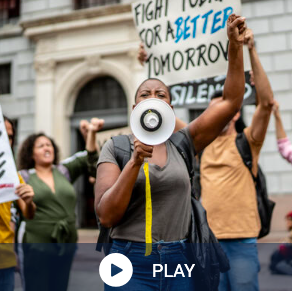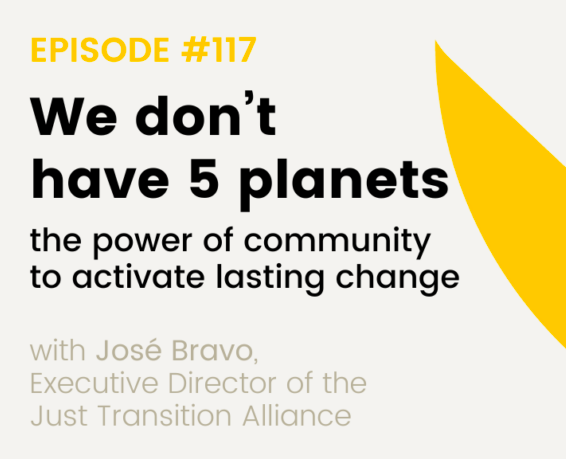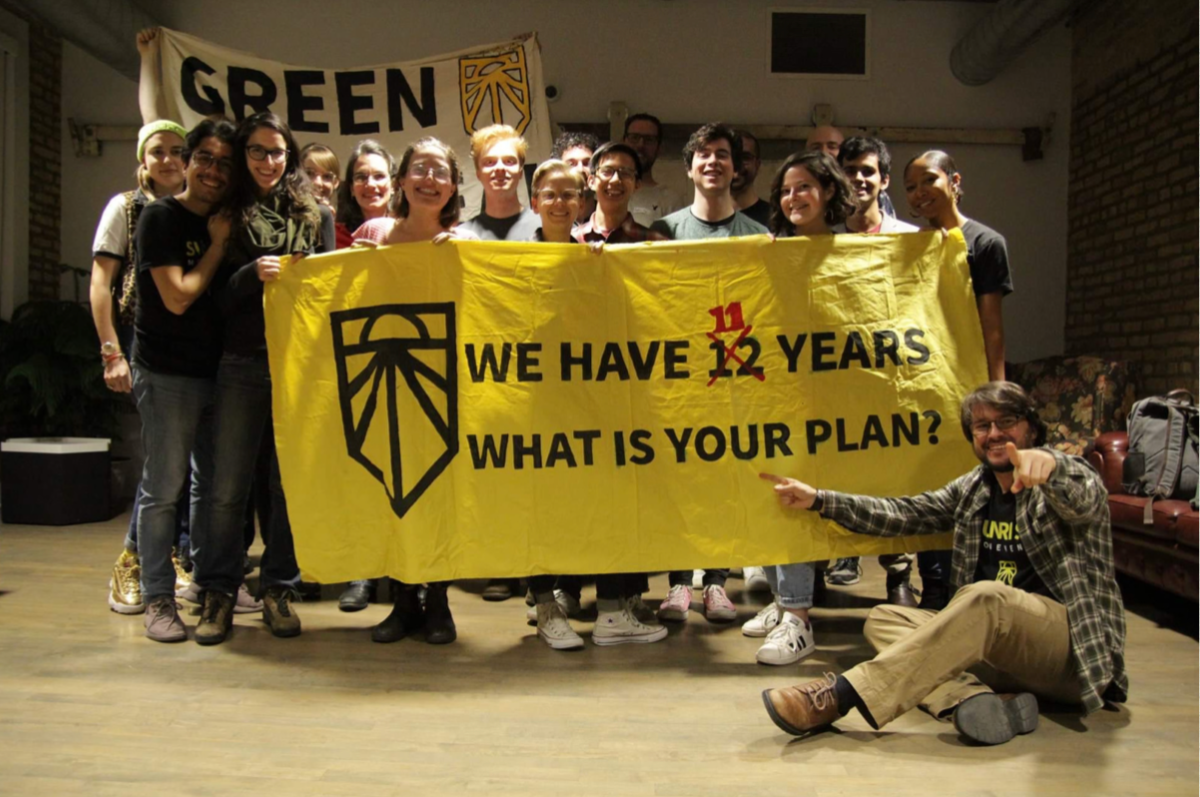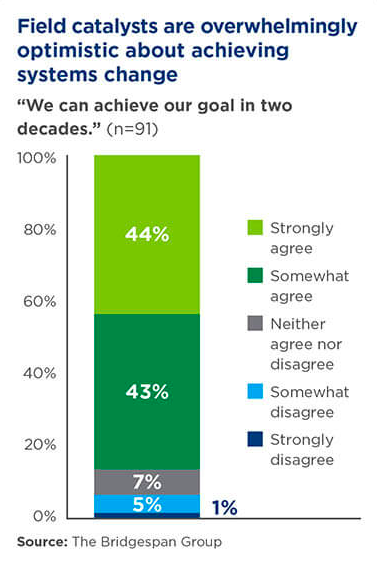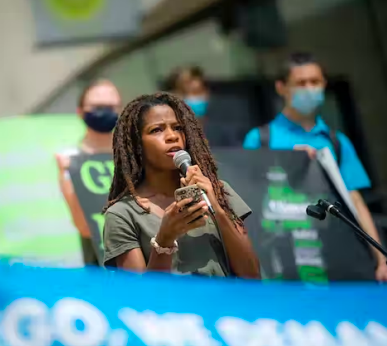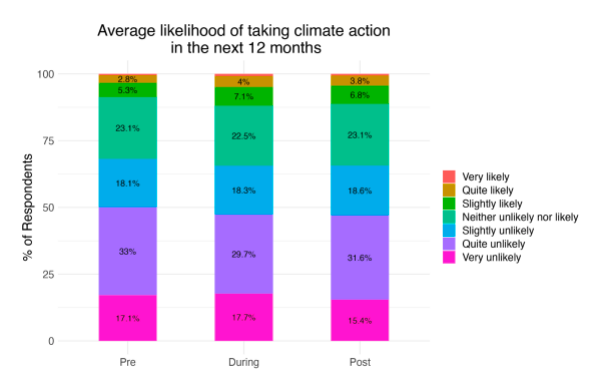Resources
Search below for resources covering the intersection of climate engagement, social science and data analytics.
RESULTS
Get Up, Stand Up: What Actions Move the Needle?
The climate movement has recently tried more disruptive direct action tactics. Some of these include protests by the group Just Stop Oil throwing soup in famous art and the movie How to Blow Up a Pipeline. Sociologist Dana R. Fisher argues that these tactics generally can have the effect of mobilizing more people to join movements (not persuading people in the middle. Further, more research is needed to understand the various political effects of direct action tactics. The intensifying effects of the climate crisis have grown the climate movement, and its focus has changed to more material effects on people’s lives. A diversity of tactics is necessary for movements to create lasting change. Rose Abramoff, a climate scientist, protested lack of climate action and eventually lost her research job because of it. Ilana Cohen, cofounder of Fossil Free Research and leader of Divest Harvard, helped push Harvard to divest from fossil fuel investments. Cohen argue that persistently organizing with creative tactics helped the campaign win.
We don’t have 5 planets
In this Upstream Indisposable podcast episode, host Priscilla Johnson talks with Just Transition Alliance Executive Director José Bravo about building grassroots power and bringing restorative justice to frontline communities. José says, “There is nothing like knocking on somebody’s door and having a conversation, and building community. That’s super important because you start to understand that there are people who think like you, and there are people who understand where things should be.” Later, he describes how “There’s been a lot of game-changing solutions. In particular, when we’re talking about exposure to chemicals, I think that there are communities that are over-impacted by the exposure to chemicals. There’s communities that have literally the extraction of what will later become a chemical, the production of that chemical, the use of that chemical, and then later the disposal of that chemical. So, in communities of color and low-income communities in the United States in this case, we see that chemicals keep on giving at different parts of the cycle of production and use. And I think for us, it’s about forming local economies to scale.”
Reflections, Lessons and Learnings on Multiracial, Cross-Class Movement Building
From studying past social movements, the Lab has learned that the transformational change necessary to equitably address the climate crisis is more likely to occur when multiracial, cross-class (MRXC) movements* claim their collective power, expand the imagination of what’s possible, and organize and mobilize people at scale. In the last 5 years, the Sunrise Movement has demonstrated a commitment to learning and practice on multiracial, cross-class movement building. This week’s newsletter features reflections and lessons from Lab member and Deputy Organizer Director at Sunrise, Dejah Powell. As a Lab member yourself, you can read the full report* on how Sunrise has been working to build a movement across race and class, and the implications and learnings based on those efforts. This report was developed as part of the Lab’s Climate Justice Microgrant Program.
Field Catalyst Origin Stories: Lessons for Systems-Change Leaders
Solving complex social problems offers unique challenges—here are lessons from “social-change makers” for fellow leaders. First, a critical step to build trust is to center the voices and perspectives of those most affected by inequitable systems themselves. Second, given constraints in human capacity, consider experimenting by hiring differently, deploying talent differently, and surrounding yourself with people who think differently than you. Third, measure your impact—use principles that center equity and learning, track the state of the field’s development, monitor your progress, and don’t forget the health of your own organization. Fourth, be sure to find balance between long-term visioning and planning and short-term action.
Equitable Systems Change: Funding Field Catalysts from Origins to Revolutionizing the World
Even with modest beginnings, “systems-change organizations” seek world-changing outcomes. But solving complex social problems is uniquely challenging. This resource surveyed “field catalysts” aiming for systems change across a variety of issues, including health equity, gender-based violence, climate change, and education. It found that their work could be accelerated with the right support from funders. Because these organizations consistently punch far above their weight, 87% of field catalysts believe they would achieve their systems-change goals within just two decades if provided the necessary resources and consistent support. This resource also profiles some organizations, including IllumiNative, Harambee Youth Employment Accelerator, South African National AIDS Council, Community Solutions, Health Care Without Harm, Movement for Black Lives, Families and Workers Fund, and more.
The North Star State has a new North Star: 100 percent clean electricity by 2040. Minnesota joined 10 other states, along with the District of Columbia and Puerto Rico, in creating laws that require a transition to 100 percent carbon-free electricity—highlighting a trend of state-level action to act on climate, create local jobs, lower energy costs, and reduce deadly pollution. MN Representative Jamie Long, Majority Leader of the Minnesota House, and advocacy group Fresh Energy executive director Michael Noble played key roles in making 100 percent clean electricity the law of the land in the state. This resource includes an interview with them about the process leading to this new Minnesota policy. A big coalition of interest groups supportive of this policy was necessary for its passage. The bill passed full Democratic support and zero Republican support. The coalition included small business, families, family-supporting jobs and labor and trade unions, environmental justice groups, environmental groups, and traditional advocates for renewable energy.
What determines the success of movements today?
New research from the Social Change Lab offers key insights into the three main factors that lead to protest wins. First, nonviolent tactics are more likely to lead to successful outcomes relative to violent outcomes—experts consulted were reasonably confident that violence is a less effective approach and the literature supported their view. Second, size of protests is really key, with better-attended protests meaning a higher chance of policy changes and other desired outcomes. Third, favorable sociopolitical context like pre-existing public opinion, the response of the media, whether there are elites (like politicians or celebrities) who support the cause, as well as blind luck are helpful for facilitating successful political outcomes.
Innovation Hub
The Innovation Hub is here to empower data learning and strategy among environmental organizations. The Partnership project works directly with data strategists and communications teams at partner organizations to assess common needs and opportunities that can be met with data, and designs original research and experiments, pilot new methods and data tools, and highlight innovative projects. This website share what is being learned through case studies and playbooks, webinars and meetups, newsletters. Workstreams include “extreme weather insights and targeting,” “GOTV and civic engagement,” “membership match resources,” “more insights and data.”
3 reasons local climate activism is more powerful than people realize
When people speak up and work together, they can spur powerful changes. Research and history suggest that local action is more powerful than many people realize. First, much of the policy change that can affect climate change is local rather than national. Second, local wins can become contagious. Third, local action can trigger national policy, spread to other countries and ultimately trigger global agreements. Yet, while 70% of American adults describe climate change as an important concern, only 10% say they volunteered for an activity focused on addressing climate change or contacted an elected official about it in the previous year. Polls show some people see how money from wealthy industries and individuals influences politicians and don’t believe politicians listen to the public, and others are distracted by arguments that can tamp down engagement, such as campaigns that urge people to focus on individual recycling, or ask why the U.S. should do more if other countries aren’t. A description of the book on which these argument are based can be found here: https://aronclimatecrisis.net/
Radical Tactics Are Likely To Help The Climate Movement, Not Hurt It
While radical nonviolent protesters are often ridiculed and hated, there is little evidence that their tactics have negative consequences for the overall movement. There are myriad benefits to employing more radical tactics. Radical tactics, which by definition are actions that are somewhat abnormal, receive much more attention than moderate actions. Radical tactics can increase support for the moderate factions of the climate movement. Radical tactics can increase the percentage of people who think the environment was the most important issue facing a country—for example, when Extinction Rebellion London blocked Central London for 10 days in a row, the percentage of Brits who thought the environment was the most important issue increased from roughly 18-28%. Radical tactics can increase willingness to take part in certain forms of activism. In April 2022, a poll found an increase of 1.7 percentage points in the number of people saying they were willing to take various forms of climate action.
Pagination
- Previous page
- Page 2
- Next page
